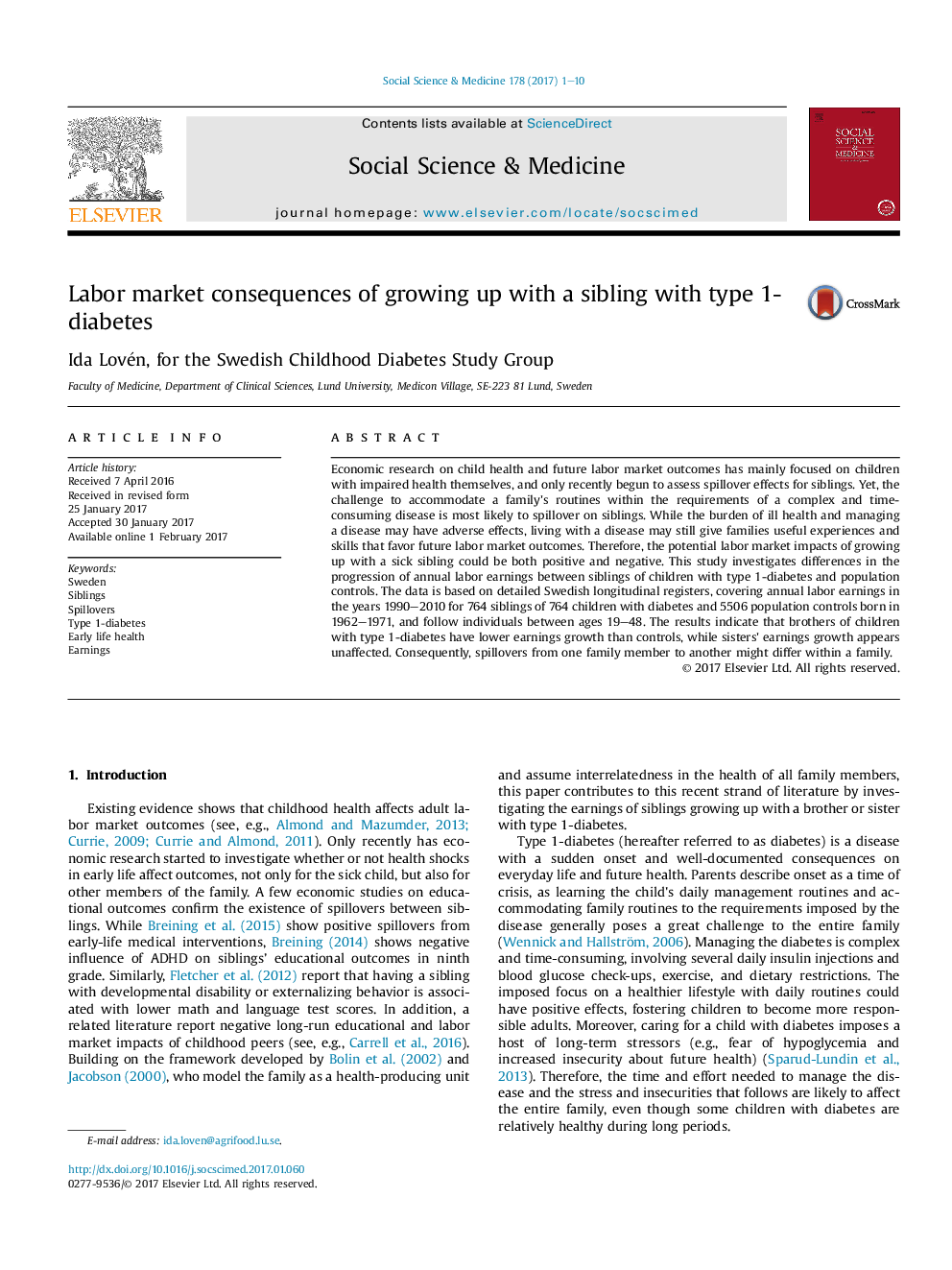| Article ID | Journal | Published Year | Pages | File Type |
|---|---|---|---|---|
| 5046647 | Social Science & Medicine | 2017 | 10 Pages |
â¢Adds to recent research on how a health shock to one family member affects another.â¢Sibling spillover effects of type 1-diabetes on earnings trajectories in ages 19-48.â¢Entropy balancing weights make a control group more similar to the sibling group.â¢Fixed effects control for all time-invariant factors at the individual level.â¢Spillover effects on brothers' earnings trajectory, but sisters appear unaffected.
Economic research on child health and future labor market outcomes has mainly focused on children with impaired health themselves, and only recently begun to assess spillover effects for siblings. Yet, the challenge to accommodate a family's routines within the requirements of a complex and time-consuming disease is most likely to spillover on siblings. While the burden of ill health and managing a disease may have adverse effects, living with a disease may still give families useful experiences and skills that favor future labor market outcomes. Therefore, the potential labor market impacts of growing up with a sick sibling could be both positive and negative. This study investigates differences in the progression of annual labor earnings between siblings of children with type 1-diabetes and population controls. The data is based on detailed Swedish longitudinal registers, covering annual labor earnings in the years 1990-2010 for 764 siblings of 764 children with diabetes and 5506 population controls born in 1962-1971, and follow individuals between ages 19-48. The results indicate that brothers of children with type 1-diabetes have lower earnings growth than controls, while sisters' earnings growth appears unaffected. Consequently, spillovers from one family member to another might differ within a family.
